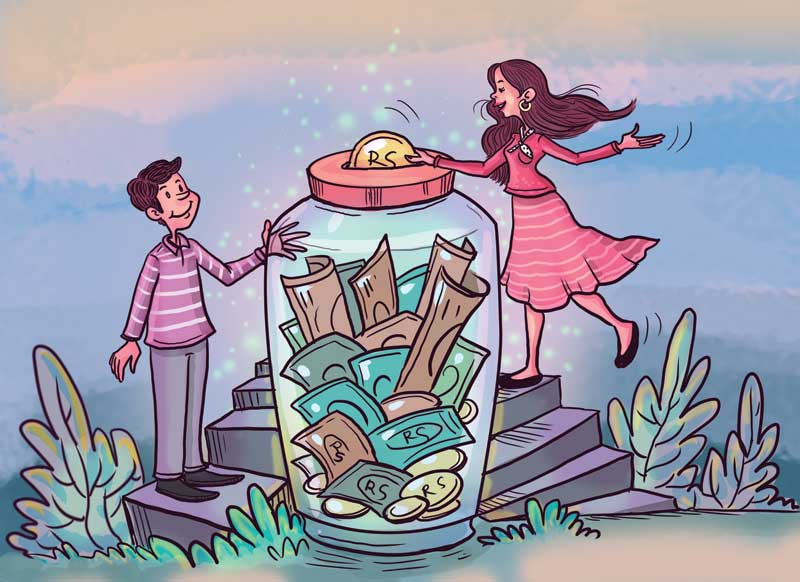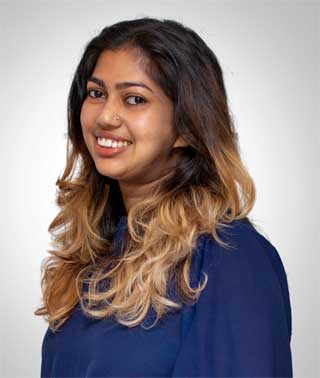
Sep 24 2021.
views 236
 A GUIDE TO THINKING ABOUT
A GUIDE TO THINKING ABOUT
Financial Independence in your 20s
Personal Finance in your 20’s are a complete rollercoaster. One minute you are 19 and fresh out of school, never having heard the word ‘personal finance’ and suddenly you are somewhere in your 20’s, torn between living your best life and experiencing the anxieties of saving for your future and that very, very distant retirement. Add all the uncertainties brought forward by the global pandemic into the mix, most of us in our 20’s are now seriously discussing our personal finance and financial goals with one big question – where do I start? In this mini-series, we talk to financial experts and non-experts on the art of managing personal finance; how to save, how to spend and where to invest.
THE BASICS: WHAT ARE YOU SAVING?
Everyone is always quick to say that it’s important to grow your savings; invest, invest, invest so you can earn money in your sleep. But in between earning an income and investing your money, the step in the middle is always the hardest – saving! While ‘saving’ is a concept that’s been drilled into our brains since childhood, the how’s and why’s of it remain somewhat of a mystery; how much should you save and what exactly are you saving for? What does it mean to build a saving habit?
Meet Senashia Ekanayake, a non-expert financial blogger under the moniker @seniinthebox. Senashia’s finance blog has become somewhat of a go-to when it comes to personal finance for young adults with readers finding her personal financial experiences and tips relatable and easy to apply. While Senashia is professionally a writer and a communications consultant, she started her personal finance blog to detail her own financial journey and share what she’s learnt along the way – having noticed a gap in financial advice that resonates in a Sri Lankan context.
In our first segment, Senashia guides us through the basics; how to build a saving habit and where to start.
I think before going into savings, this is the most important thing to do. If a budget is something you are used to then this should come naturally to you. If there is no budget then perhaps a good way to go about is to start tracking your expenses. This could be through bank statements or if that is not an option, by collecting any receipts or listing out a month or two worth of expenses (all expenses including that random brownie delivery after a bad work day). Once you take stock of your expenses, then try to see this in comparison to what you earn in a month. To make things easier for yourself, the best place to start would be to compare this against the (largest) fixed income you have. Thereon, it would be a matter of really narrowing it down on your expenses and trying to understand what important vital spendings are and what’s discretionary.
The fact that you have decided to save is a great thing. It is a privilege on it’s own and what you are doing is pretty great. Understand how much you can comfortably (or if you are disciplined enough, uncomfortably) put away every month. Once this trajectory is mapped out and your monthly expenses are sorted then ideally anything else you receive there on should go into savings or large expense you are saving towards. Traditionally though, there are those who also say that as a percentage, savings should be a minimum of 20%, but I don’t actually agree with it as this can really vary across the board depending on the expense or lifestyles people choose to have or are forced to have.
Having a high salary does encourage saving and does seem more appealing, not going to lie. However, when it comes to savings, I think the main goal here is consistency in savings as opposed to the amount of savings. The goal is to start a habit that would last you through the years and then as you grow older and your salary increases, you can also incrementally work toward increasing your savings contribution as well. However, having said that, if you really want to save towards big ticket purchases at a young age while on a low salary then the way to go about it is to ensure you try to bring in more income. To add, in a local context, we are fortunate that most, not all, (married or unmarried) live with their parents which can really ease the burden off things like paying a full rent. While I do understand, and I too was definitely one of them, earning at the beginning or when you are out of school or university can seem like financial freedom, but the real financial freedom is when you have money kept away knowing that you can buy what you want (if you choose to do so) without having to break the bank!
If you are starting to save, any savings is good really. As I keep mentioning on repeat, the goal is to build a habit. Once we have a good habit in place, we could have three types of savings to start. This is personally what I have going.
An emergency savings fund - this would be an account which would hold about 6-12 months of your monthly expenses in case of an emergency and you are unable to meet these expenses every month through a stable source of income. Mapping out your expenses as we discussed earlier would be important to understand what this number needs to be.
A retirement fund - a lot of us don’t talk about retirement up until much later in our lives but it’s actually a good idea to start on these as early as possible given that it would give you more years to meet this fund. However, having said that, depending on your place of work you might also be eligible to EPF, gratuity or even a pension. But having an additional retirement fund is also a good idea I think – especially if you also work freelance/part-time on consultancies. Both banks and even some insurance companies now offer retirement funds here in Sri Lanka.
A savings account of your choice - this could be an account towards things like big ticket purchases, travelling or anything you want.
What’s more, if you are looking into an emergency fund and a retirement fund, it’s always good to look at an option of a high interest savings account. There are usually some special conditions associated with these accounts including a minimum deposit amount, minimum monthly contribution and limited withdrawals (which shouldn’t anyway happen if you are saving). Some of these accounts are not fully functional / do not give out the complete interest rate due to COVID-19 but it does bring in a higher return (eventually)!
You need discipline! But I think that’s easier said than done though. I actually ran into this problem at the beginning back in 2014 -2015 and put in place some “physical” barriers. For example, by not getting an ATM card or online banking for your savings account you are able to “physically” not access this account – especially during these times. SMS alerts would be useful for you to track these savings though.
Save consistently for a period of time no matter how small your savings contribution is.
Think of savings as an expense and therefore a fixed or priority expense.
Having a separate bank account or accounts for savings, preferably at a different bank as well.
Make sure your savings are difficult to reach “physically”.
Revisit your finances, budgets and finance goals, if possible, every quarter.
Disclaimer: This article is for informational purposes only and should not be considered as finance/investment advice. Do independent research, talk to a financial advisor and / or seek independent advice when appropriate and necessary.
0 Comments